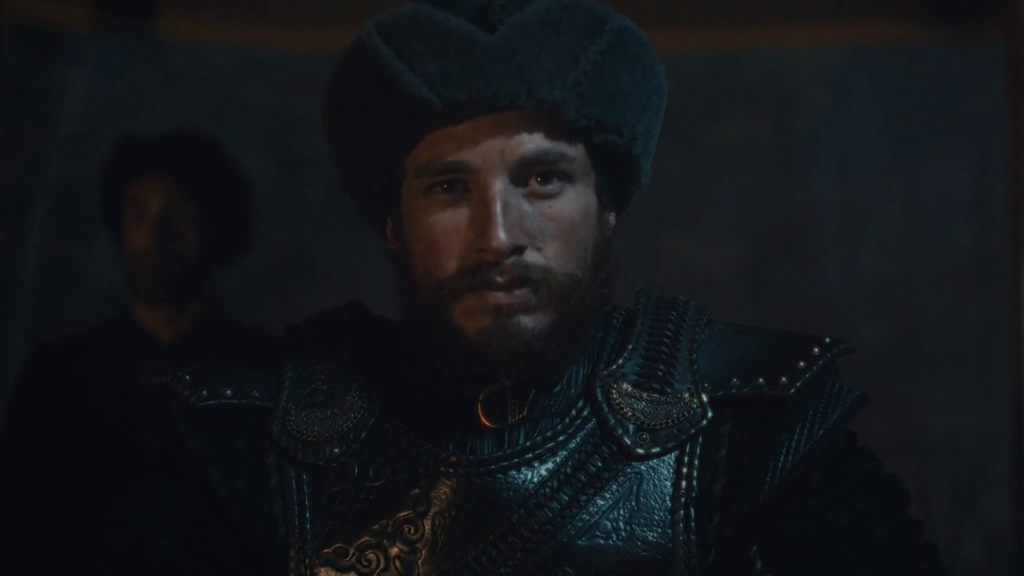
Rise of Empires: Ottoman – Episode 8 Recap (Urdu Dubbed)
Description:
Episode 8 of Rise of Empires: Ottoman takes the viewers deeper into the aftermath of one of history’s most dramatic events: the Fall of Constantinople. As the dust settles over the conquered city, this episode focuses on the consolidation of power by Sultan Mehmed II, the transformation of Constantinople into the heart of the Ottoman Empire, and the profound impact this conquest had on both the Ottoman and European worlds. The Urdu-dubbed version amplifies the intensity and gravitas of these events, providing an emotional and informative retelling for Urdu-speaking audiences.
Opening Scene: A City in Ruins, A New Beginning
The episode opens with a somber view of Constantinople, now a city in ruins after weeks of siege and battle. Sultan Mehmed II, victorious but mindful of the destruction, begins to plan for the city’s reconstruction. The Urdu dubbing enhances the emotional weight of these scenes, as Mehmed surveys his newly conquered city, filled with both pride and the realization of the immense task ahead of him. The narration explains how Mehmed viewed Constantinople not only as a military prize but as a cultural and political capital that would become the heart of his empire.
In the opening scenes, the sultan’s strategy for restoring the city begins to unfold. Mehmed’s vision was not just to rebuild Constantinople, but to transform it into Istanbul – a cosmopolitan center that would serve as the bridge between East and West. The Urdu narration adds a rich cultural layer to these moments, explaining how Mehmed’s policies aimed to blend the various communities in the city, including Muslims, Christians, and Jews. The Urdu dubbing brings this historical context to life, helping viewers understand the complexity and significance of Mehmed’s early decisions.
Click Here To Watch Rise Of Empires Ottoman Episode 8 Urdu Dubbing

Player 1:
Player 2:
Mehmed’s Vision: Rebuilding and Uniting
One of the key themes of Episode 8 is Mehmed’s vision for the future of his empire. The Urdu voiceover adds depth to his character, portraying him as both a military genius and a ruler with a deep understanding of governance and diplomacy. After the fall of Constantinople, Mehmed knew that merely conquering the city wasn’t enough; he needed to win the hearts and minds of its diverse population. The episode showcases his efforts to integrate the city’s various religious and ethnic groups into Ottoman society.
The Urdu narration emphasizes Mehmed’s policies of tolerance and pragmatism. Viewers learn how he allowed the city’s Christian population to maintain their religious practices and how he invited scholars, artisans, and merchants from across the Muslim world to settle in the city. The transformation of Constantinople into Istanbul is shown as a carefully crafted process, blending Ottoman culture with the city’s rich Byzantine heritage. The Urdu dubbing makes these moments more relatable, connecting Mehmed’s vision of unity to the cultural diversity of modern audiences.
Establishing the Ottoman Legacy: Hagia Sophia and Beyond
One of the most symbolic moments of the episode is the conversion of Hagia Sophia from a Christian cathedral into a mosque. This act, while controversial, is portrayed in a nuanced way. The Urdu-dubbed version gives special emphasis to the historical and spiritual significance of this moment. Mehmed’s decision to convert Hagia Sophia was not only a demonstration of his power but also a symbol of the new Ottoman identity – one that would embrace both its Islamic roots and the rich cultural legacy of the lands it conquered.

The Urdu narration explains how Hagia Sophia became a powerful symbol of the sultan’s authority and the unity of the empire. As Mehmed stands in the grand hall of the Hagia Sophia, his gaze filled with determination, the Urdu dubbing captures his thoughts on the future of the empire. The Urdu voice actors bring an emotional depth to these moments, highlighting Mehmed’s respect for the history of the city, while also making clear his desire to reshape it in the image of his expanding empire.
Beyond Hagia Sophia, the episode explores the broader cultural and administrative changes Mehmed implemented. He established new laws, reorganized the military, and restructured the city’s economy, ensuring that Istanbul would not only survive but thrive as the capital of a new world power. The Urdu narration adds detail to these reforms, explaining how Mehmed’s policies laid the foundation for centuries of Ottoman rule and turned Istanbul into one of the most important cities in the world.
Resistance and Challenges
Despite his victory, Sultan Mehmed faced numerous challenges in securing his new empire. Episode 8 delves into the internal and external resistance that threatened his rule. The Urdu dubbing intensifies the portrayal of these moments, as Mehmed encounters opposition from both within his empire and from European powers still reeling from the fall of Constantinople.
The Urdu narration brings clarity to the political complexities of the time. While Mehmed had secured Constantinople, there were still Byzantine remnants and rival factions that posed a threat to his rule. The episode shows how Mehmed used both diplomacy and force to consolidate his power. The Urdu dubbing captures the tension in these scenes, especially as Mehmed navigates the delicate balance between maintaining order in his empire and preparing for future expansion.

The European Reaction: Shockwaves Across the Continent
One of the most interesting aspects of Episode 8 is the exploration of how the fall of Constantinople sent shockwaves across Europe. The Urdu-dubbed version vividly portrays the fear and awe that Mehmed’s victory inspired in European courts. As news of Constantinople’s fall spread, European powers scrambled to reassess their strategies in dealing with the Ottoman Empire.
The Urdu narration helps viewers understand the broader geopolitical implications of the event. The episode shows how Mehmed’s victory shifted the balance of power in Europe and how the Ottomans were now viewed as a dominant force in both the Mediterranean and the wider world. The narration also touches on how this victory opened new trade routes and opportunities for the Ottomans, further solidifying Mehmed’s legacy as one of history’s greatest conquerors.
Conclusion: The Legacy of Mehmed the Conqueror
The episode concludes with a reflection on Mehmed II’s legacy. By the end of Episode 8, viewers see Mehmed not only as the conqueror of Constantinople but as the architect of a new empire. The Urdu-dubbed version brings a sense of closure to the series, as it highlights the lasting impact of Mehmed’s reign on the Ottoman Empire and the world.
The final scenes show Mehmed looking out over his empire, with a sense of fulfillment and the promise of future conquests. The Urdu narration leaves viewers with a sense of awe at the magnitude of Mehmed’s achievements and the historical significance of his reign. The episode captures the end of one era and the beginning of another, with Mehmed the Conqueror standing at the center of it all, having forever changed the course of history.





